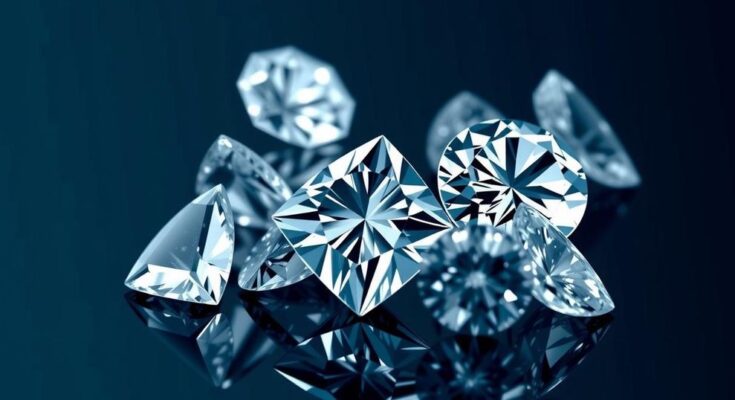Botswana and Angola are strengthening ties with the EU and G7 to combat the influx of Russian diamonds following sanctions imposed due to Russia’s actions in Ukraine. These nations are collaborating to ensure diamond traceability and transparency in Western markets, reducing reliance on diamonds from Russia, the world’s largest producer. Despite a drop in Russian diamond imports to Belgium, further cooperation between these countries and the West is crucial for maintaining an ethical supply chain.
Recent developments indicate a significant shift in the diamond industry as Botswana and Angola align more closely with the European Union and the Group of Seven (G7) nations. This partnership arises amid efforts to reduce reliance on Russian diamonds, which are heavily sanctioned due to Moscow’s ongoing military actions in Ukraine. The G7 and EU imposed these sanctions to diminish Russia’s revenue streams, as the nation is the foremost diamond producer globally, supplying nearly one-third of the diamonds that flow through Antwerp, Europe’s essential diamond trading hub. Effective traceability and transparency measures are vital to ensure that Russian diamonds do not infiltrate Western jewelry markets through obscured trading practices
Prior to these sanctions, Belgium had imported approximately €1.8 billion worth of diamonds from Russia in 2021, although this figure dropped to €1.4 billion once the full-scale invasion of Ukraine commenced. The ongoing collaboration between Botswana and Angola with Western democracies aims to reinforce the ban on Russian diamonds while promoting ethical sourcing practices, thereby paving a way towards a more transparent and reliable diamond trading environment.
In an effort to undermine Russian financial support amid geopolitical tensions, the G7 and EU enacted sanctions against Russian diamonds. These steps were largely driven by Russia’s military operations in Ukraine, which prompted international efforts to isolate the nation economically. Given that Russia was responsible for a significant portion of the global diamond supply, primarily funneled through Belgium’s Antwerp diamond trade, the challenge has been not only to impose sanctions but to ensure that such restrictions are effective against circumvention through unclear trading channels.
The partnership between Botswana and Angola with Western nations signifies a strategic advancement in the battle against Russian diamond influx into Western markets. As efforts to reinforce sanctions gain traction, the focus on enhanced traceability and transparency will be critical to maintaining the integrity of diamond sourcing. The measures taken by these competitor nations not only aim to support global sanctions but also herald a new phase of ethical diamond trade practices in the industry.
Original Source: www.politico.eu




